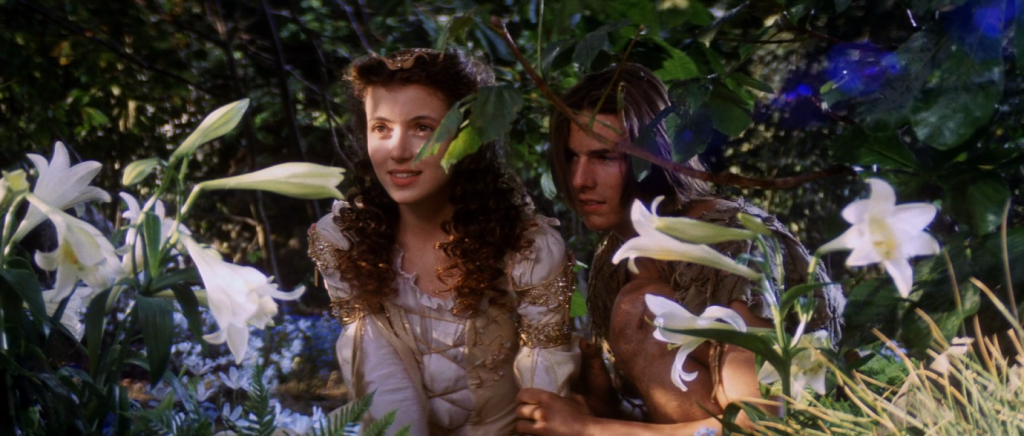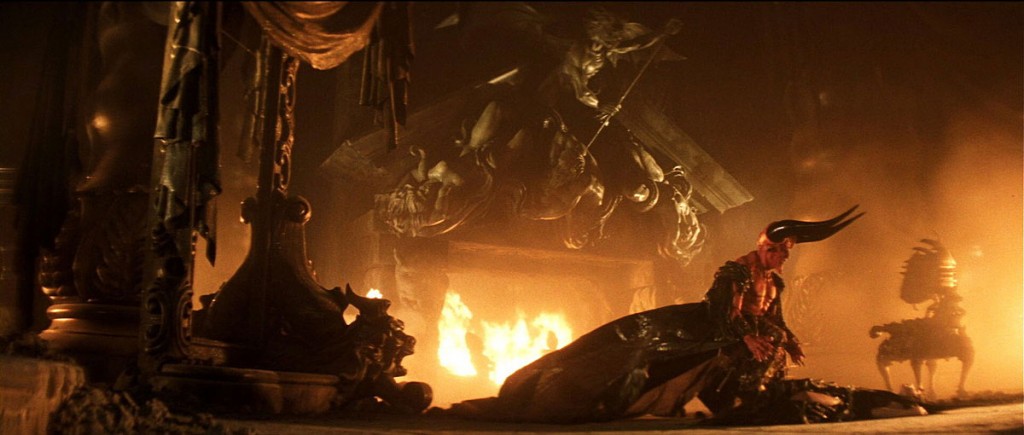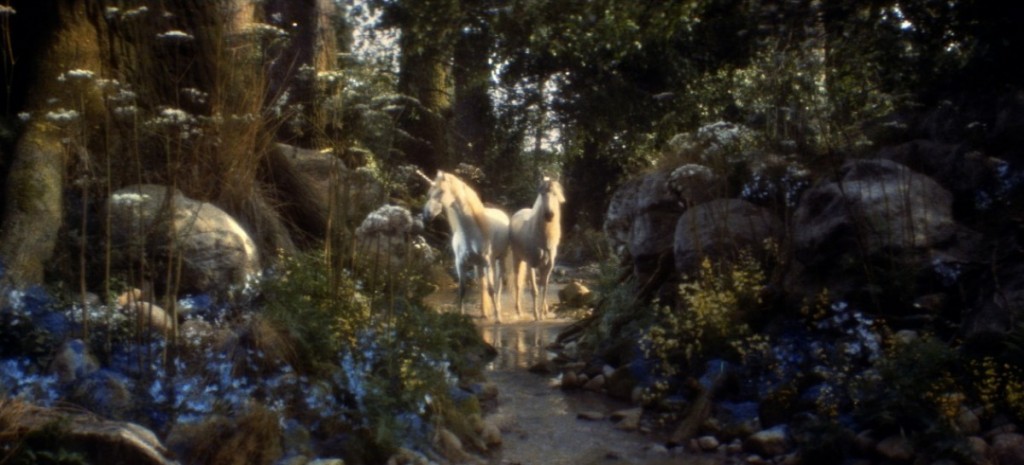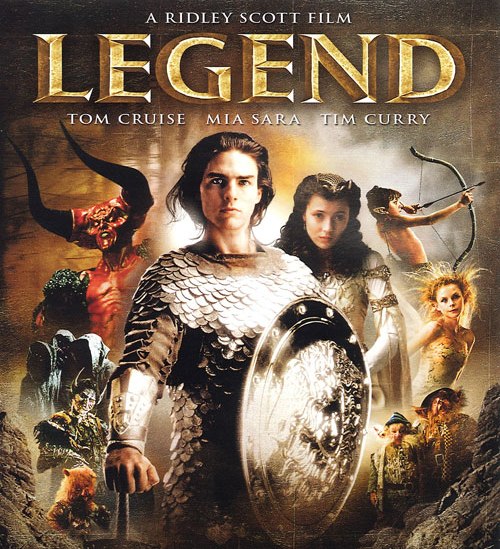Big Worlds On Small Screens & “Fantasy Films From the Eighties That Weren’t That Bad”—Rebecca Fisher Discusses “Legend”
~ by Rebecca Fisher
.
There’s no denying that Ridley Scott’s Legend is a strange film, and not a hugely successful one either. Despite the title, it’s based more on fairy tales than legends, with a good-versus-evil conflict drawn from Christian duality and its ideas surrounding light and dark, spring and winter, innocence and corruption.
The Lord of Darkness (Tim Curry playing what is possibly the most arresting depiction of satanic magnificence ever seen in a film) wants to increase his power by ensuring perpetual darkness, and so sends his goblins out to destroy the only two unicorns in the world, creatures whose deaths will prevent the sun from ever rising again.
But to kill the unicorns, the goblins must bait their trap. This task unknowingly falls to Princess Lili, a young royal who regularly escapes the palace to spend time in the forest with Jack, a mysterious woodland boy. On this day he has a particular treat in store: taking Lili to see the unicorns.
 Jack keeps his promise to Lili and takes her to where the unicorns dwell
Jack keeps his promise to Lili and takes her to where the unicorns dwell
Unable to resist temptation, Lili ignores Jack’s warnings and steps out of hiding to touch one of the beasts – inadvertently making it a perfect target for the goblins in the trees. Soon enough one of the unicorns is dead, and the world is encased in cold and darkness.
It all sounds rather trite on paper, but there is a dark undercurrent to the proceedings that definitely prevents Legend from being classified as a kiddie-friendly film. Although Jack’s quest to defeat Darkness is drawn straight from the pages of Joseph Campbell, it’s Princess Lili who gets the more interesting material across the course of story.
After realizing the part she’s played in luring one of the unicorns to its death, she vows to make amends, and on finding herself trapped in Darkness’s lair, withstands his attempts to corrupt her in the hope she’ll find a way to free the remaining unicorn.
 Tim Curry under about twenty tonnes of prosthetics
Tim Curry under about twenty tonnes of prosthetics
Though the film is probably best remembered for starring Tom Cruise in one of his earliest roles (he was only twenty-two at the time), it’s Mia Sara as Lili who really carries the film, first as the embodiment of a pure-hearted princess (with a slight bratty streak) and then as a distorted reflection of herself who is sorely tested by the dark powers that surround her.
Shot entirely on a sprawling soundstage that’s alive with flowers and birds and other animals, Legend is an odd, almost experimental film. Favouring archetypal characterization and rich visuals over a complex plot, it’s often criticized for its shallowness and predictability – but that is to miss the point of its deliberate simplicity, as well as its unique hypnotic quality.
 The unicorns (but don’t look too closely; their horns bounce when they move)
The unicorns (but don’t look too closely; their horns bounce when they move)
As it happens there is more than one version of Legend in circulation: the European and American releases (one scored by Jerry Goldsmith and the other by Tangerine Dream) as well as a more recent director’s cut. Each involves slightly-tweaked variations of cut or extended scenes, and though devoted fans will want to watch all the available renderings, the story itself is so straightforward that the essentials remain the same throughout.
.
Next Time: Willow
On completing the original Star Wars trilogy George Lucas found that he had a lot of leftover ideas – and what better way to deal with them than incorporate them into a brand new film? Willow is standard swords-and-sorcery fare, but there is definite charm to the proceedings. Maybe that’s just the nostalgia talking, but we can certainly thank it for making Warwick Davis a household name.
.
About The Reviewer:
 Rebecca Fisher is a graduate of the University of Canterbury with a Masters degree in English Literature, mainly, she claims, because she was able to get away with writing her thesis on C.S. Lewis and Philip Pullman. She is a reviewer for FantasyLiterature.com, a large website that specializes in fantasy and science-fiction novels, as well as posting reviews to Amazon.com and her They’re All Fictional blog.
Rebecca Fisher is a graduate of the University of Canterbury with a Masters degree in English Literature, mainly, she claims, because she was able to get away with writing her thesis on C.S. Lewis and Philip Pullman. She is a reviewer for FantasyLiterature.com, a large website that specializes in fantasy and science-fiction novels, as well as posting reviews to Amazon.com and her They’re All Fictional blog.
To read Rebecca’s detailed introduction of both herself and the series, as well as preceding reviews, click on:
Big Worlds On Small Screens
Rebecca won the 2015 Sir Julius Vogel Award for Best Fan Writer, for writing including Big Worlds On Small Screens.








